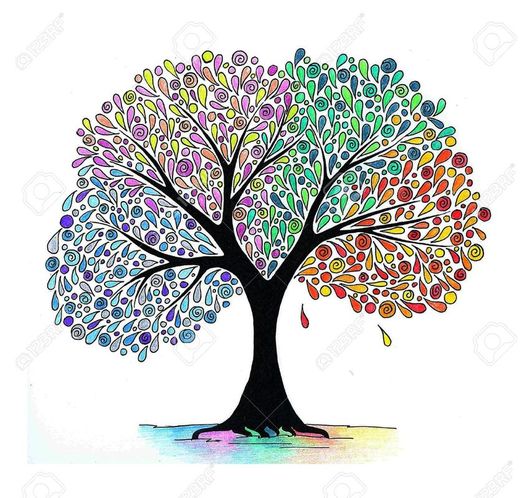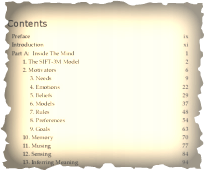|
In the course of several conversations with business associates, and friends, I have been reminded of one of the often unrecognized differences in social media usage. There are two different cultures when it comes to business pages and personal pages. But many people are unaware of these cultures. While we were discussing her unused facebook business page an acquaintance said, "Well, we won't be pursuing social media. I have known too many friends and family who get really upset when trying to decide to "unfriend" someone. It just takes up time."
And amongst friends, particularly when I have commented on part of a post on my personal page, I am asked, "Haven't you been following the discussion?" Usually the answer is, "no." Not because I don't care about what is happening with my friends, but because my main social media time is for my business. Now I will grant that the line can blur in social media, particularly if business associates are following your personal page. And friends are following your business. Yet, there are still differences in the cultures. And I compare it to the difference between a business lunch, and a cookout. The first difference obviously are the topics. At a business lunch the discussion is more focused. At a leisurely cookout the topics could flow all over the board. Behavior is another. Professionalism normally holds sway over a business luncheon with the associates behaving with a certain level of decorum. At a cookout you might kick back, and relax. Or show your true feelings. Transparency is one of the keywords of social media. So business people do need to be more aware of what they put on their personal pages, and to whom the post goes to when you write something. There are ways to post to only close friends, and to avoid seeing postings from "friends" that annoy you, even if you don't want to "unfriend" them. With business pages you are focusing on the story, and brand, you want to present to the public, and that is with the full understanding that what is posted is public. If personally a business owner doesn't want to be involved with social media there are ways to make personal pages fairly private. So there is no reason to consider social media just an exercise in a high school mindset of "they don't like me anymore." You can go to the business lunch, but if you want, you can turn down the invitation to the cookout.
1 Comment
I'm going to say up front that I love when a business hires me to handle their social media marketing; not only because of the business itself, but the chance to design a program that works for my client. However, before any business takes a step towards social media as a marketing tool, whether on their own, or letting someone else handle it, there are new developments they need to take into consideration.
Not that long ago a Facebook business page offered a great opportunity for free marketing, and everyone had heard the stories of the pages that became phenomena in their own right. And the common cry was, "You have to have a Facebook page!" And that was what many businesses did, particularly the smaller ones. Some of those pages are now sad, empty virtual store fronts, but other businesses have dutifully posted to their pages. Maybe not every day, maybe not every week, but they posted. Unfortunately that faithfulness isn't offering the rewards it once did, and in truth hasn't in a while. What has been happening is that Facebook has truly become a corporation, and has been decreasing its "organic reach" (how your free posts appear in newsfeeds). And they are doing so again. Rumor has it that the changes is so that businesses will buy Facebook advertising, or buy "likes" to boost a specific post, and there is a strong likelihood that rumor is true. It has always been true that if you aren't active on Facebook (at least 3 times a week) that your posts would get bumped from newsfeeds by more active pages. This also requires having "sharing" and "liking" occurring. Now this is even more so. The truth be told, you can't just concentrate on Facebook. All of the social media platforms are intertwined. So to have it worth your while you need steady activity on Twitter, Google +, and Linkedin (at minimum). We won't even get into the power of original content (blogs) or YouTube. This is where you need to decide whether you can commit to social media. Small businesses always have had challenges when it comes to marketing. They try very hard to stick to flyers and business cards they can do themselves. Maybe get a free website up. And try to do a bit with Facebook. However there comes a time when you have to go to a printer, or get professionally done business cards, and its the same with social media. You have to ask yourself whether you have the money, or the time, to make it work for you? Whether you work in an office, or your business is out in the elements, your business has seasons. And most people can track those in their minds, even if they never put the information to paper. You know when the peak times are, and when the slow times stretch. You also know why. And for those with seasonal businesses you know that there are fluctuations within the seasons, which will affect you. A wet spring? A steamy summer? Those fluctuations require different reactions.
All of this is the mother lode of content! And at the beginning of the year is the perfect time to sit down, and do an outline of your season. While you are doing this, ask yourself some questions. 1. Can you give a head's up to your clients about what is coming up? Can you put out a call for action? 2. What suggestions can you give to them? What tips? 3. What causes your slack times? What types of promotional can you use to head them off? Or at least ease them. 4. If your work is seasonal, what can you suggest for preparation for the coming season? 5. What should your clients know about weather related delays? Of course, there are also those who are just starting out, and don't know your "seasons" yet? Then you take a hard look at your products, or services. And ask yourself, what stories can you tell about those products or services? Start off by telling about yourself. Your personnel. Why you were passionate enough to have started a business. Spend time detailing aspects of your products, and services. Information - not just sales pitches. And tell about your passions in the community. What are your favored charities? Where do you pitch in? Established or new - tab into your seasons! There are so many aspects to our businesses, so many little details, it is easy to forget those that have “been dealt with.” This particularly holds true for websites, and also for social media platforms.
When many of us came to the internet, and faced the fact that a website was necessary, we turned to an expert. And for the smaller businesses that meant either going with a friend (or a friend of friend), or a mid-range web design business. Of course, for many of us this was before even Facebook had been heard of. So we had our website designed, and it really looked high tech, and we even remembered to put it in our brochures. Then social media came along…… The internet became that much more interactive, and just having a static web site was not enough. So some got brave, and went out and created a Facebook page. Time passed and now the internet, along with our offices, is a Sargasso sea of lost passwords, and stray social media pages. So, whether you are floundering in that sea, or are contemplating entering the world of social media, here are some things to check off. 1. Is your web designer still available? 2. Do you have all of the log ins and passwords for your website if you need to get a new designer? 3. Do you know where you put the passwords to your social media sites? 4. And if so, have you actually used those passwords in the last six months? The reasons for these questions are simple. If you have decided to make the commitment to enter the realm of social media then you will need to have the icons on your website. And if you are doing blogging you will either need a blog on the site, or a link to a popular blog site (such Wordpress or Blogger). And with some of these sites, such as Pinterest and Google Analytics, you may have to have meta-tags installed to your site so information can be tracked. Also, if your social media passwords are old then you will need to set up new ones. You may also need to track down old, dead, social media pages. The main thing to remember is that nothing is static anymore. So having the information at hand will save you time and frustration in the long term. When you are thinking about doing social media what should you have ready?
1. Look around your business, and think about questions your customers have asked. Are there reoccurring ones? Are there special products that normally need a little more explaining. What is your history with the business? And general trends that you are aware of in your profession? 2. Then think of your seasons. What is your down time? What is your busy season? What produces these highs and lows? 3. What pictures, photos, or graphics do you associate with your business? Always keep in mind that images are a powerful tool on social media sites. 4. What organizations, hobbies, or charities are you involved in? What industry magazines do you subscribe to? 5. And never forget to keep track of special events that might be coming up, or are reoccurring. All of these provide the "meat" for your ongoing social media campaign. It doesn't matter whether you, a staff member, or a consultant is handling the day to day - all of this will be needed. The knowledge of the highs and lows, and the special events, will help to create a calendar for your campaign. Just keep in mind, it really is no different than the thought processes that every business owner uses in the life of their business. You know it better than you know your home, and you can discuss it at length. And all of that is what it takes to make a good social media campaign. I am starting to think that one of the scariest thing for many business owners is that social media demands ongoing activity. The fact that business is coming into an era of "digital word of mouth" is intimidating.
Recently I was speaking with a prospective customer, and was working with a new approach. I had decided to develop this approach because I thought the term "social media" was what was terrifying people. So I set off to explain that instead of worrying about the technical end of social media that they should first think of it as doing what they always did - interacting with their customers. To look at it as an extension of the local word of mouth. As we were discussing traditional advertising, and what made this different, I pointed out that standard advertising was one way. You develop your flyers, your newspaper ads, T. V. spots, and radio strategies, and all of these are sent out into the great world. And basically, unless someone mentions any of the business's advertisements, you will never really know what brought the customer in. With social media you have a better chance of interacting with your customers, and giving them a chance to know you. They know they can contact you quickly from any number of mobile tools, and express themselves in "real time." And as I was listening to my potential client I realized that it may not be a fear of the term "social media," but stage fright. That the need to come up with interesting material on a weekly basis caused him to freeze. It didn't matter that I can help with finding content - it was that owner input would be required. Nor was it just a terror of needing original content it was that there had to be a consistent strategy. This also got me thinking of some of my other clients. When I am setting up for a new client I will talk to them about the aspects of their business that could be used for blogging, or helpful hints. And I will also ask about organizations, hobbies, and charities they are involved in. The later gives me filler material to work with when I don't have original content. The first response I often get is, "Oh, I'll leave that to you!" I always do a follow up email after the initial fright goes away. In the email I will ask the same questions, and usually get better input. Really it is a case of realizing that while social media is more interactive that basic marketing still applies. The business owner knows their products, and when they create the standard advertising they know they will need images and focused content. With social media you need all of that, but you also need to have an idea what you want to do week to week. You need to know consistently, "what is the meat of the story?" This time around I am going to focus on public opinion and communication. Letter writing has always played a huge role in the spread of public opinion, with an example of this being during the heydays of immigration. In A True Picture of Emmigration, by Rebecca Burlend, the author told how her husband listened for news of letters coming from America. Then he would go and hear what was said of conditions in the U.S.. Nor can the power of the coffee and chocolates houses be forgotten - as those gathering places were where politics and popular opinion were vehemently discussed.
Jumping ahead to today, and particularly to the oft-bemoaned fact that everyone has their nose in their smart phones and tablets. And while I will admit that I too bemoan this on occasion it also cannot be ignored. Or, it might be better to say, "It is risky to ignore." The forums for public opinion have changed, and become lightening fast.... ......Pictures of a restraurant dinner on Facebook are usually sent with a comment..... ......Bored people, waiting in line, having nothing better than to Tweet their status...... Basically opinions of businesses and services fly with the speed of thought. And businesses can only ignore this at their risk. If you don't "hear" what is being said then you cannot highlight the praise, or show solid customer service, if there was a problem. Nor can a business afford to focus on just one "window" into the thoughts of their customers, because their clients may use a Tweet one day, or a FB post the next. Or they may be on a tablet, and writing a longer review on Google Plus. For me the last week the theme has been "communication." This hasn't been so much about my personal communication as about how it may be changing. Or not. When it comes to social media the popular outcry is, "It's killing social skills - Everyone is on their text!" and "It will do away with real letter writing - it will kill how we write at all!" Yet, this week I have seen more business articles on the need for businesses to actually communicate with their customers. To actually interact, and be social. And I have been avidly reading these articles in hopes of learning a means to get that idea across to clients. And, of course, being a history buff, my mind also began making comparisons to older forms of communication. The first, and most popular, comparison, and statement, is that there is always a outcry that new technology will kill the older. And while communication methods change - they never really kills the original. So I decided to do a two part blog on letter writing and social media; part history and part business. The first part will concern itself with a communications overview. And Part 2 will be concerned with the power and spread of opinion. I'd say that letter writing really hit its heyday as families and friends became separated by marriage and necessity, particularly as people immigrated off to more distant lands. The price of posting and of writing materials always was a factor, and so information was often crammed into as much white space as was possible. Even when telephones came along - the price of a call, particularly long distance calls, impacted how much time and information could be shared. And so back to the letter. When email came along it allowed for communicating across far greater distances, for next to nothing, and in a shorter time. Much more could actually be shared, and letter writing flourished again. Now we are seeing the same with the social media, though not at the length. People now don't have to save up a bulk of information, and then condense it all into cliffnote versions in their lives. It can be communicated as they think of it, and responded to just as quickly. Now back to business.... I know from having a father who was a salesman that business people are very social individuals. Often times business associates become lifelong friends, and conversations can go on for hours - if schedules allow. However, they are also trained in a business mind set. That says, "You have to get your sales point across quickly and efficiently." Mailings and advertisements are aimed at this. Even networking groups don't really allow social interaction; the members come in, present their product/service, and only if they have a minute at the end of the event can they grab a second to socialize. So when business personnel are dealing with social media they are still in the same "get to the point, and advertise" mindset. Getting your product and service out there is definitely the "why" of being on the internet, but the way of communicating needs to go back to the concept of knowing your customers. To do this, you have to think "conversation." This allows customers, particularly new customers, get a feel for who you are, and how you interact. You become a little bit more "real" to them, and they will feel more comfortable doing business with you. |
Cathy Mosley
Cathy Mosley brings her 26 years of storytelling and writing experience to the realm of Social Media. To help small businesses. Archives
July 2021
Categories
All
|








 RSS Feed
RSS Feed

